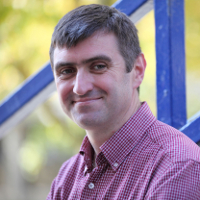Project outline
Project summary
 Title: The OBR and the Politics of UK Growth amidst Brexit, Uncertainty and Austerity
Title: The OBR and the Politics of UK Growth amidst Brexit, Uncertainty and Austerity
Duration: October 1st 2018 to September 30th 2021
Funded by: The Leverhulme Major Research Fellowship scheme
Project Lead: Professor Ben Clift
Professor of Political Economy
Department of Politics and International Studies, University of Warwick
Synopsis
UK economic growth forecasts have a significant influence over policy decisions, such as the adoption of Austerity measures, through their assessment of what tax revenues are likely to be available to the Government and their assumptions about the impact of disruptive events like Brexit.
This project will explore whether these highly significant economic forecasts are grounded in firm evidence and unquestioned scientific methodologies, or if they are in fact political constructions, based on contested methods, bedevilled by uncertainties, and subject to substantial retrospective revisions. It will also explore broader political economic questions about Brexit and the future trajectory of the British model of capitalism.
The research involves comparative analysis of linkages between Office for Budget Responsibility growth projection assumptions and the conduct of UK economic policy before and after Brexit.
By analysing the research, speeches and other intellectual outputs of the Office for Budget Responsibility, the Treasury, the Bank of England and other official bodies, as well as interviewing experts, technocrats, and policy advisors, Professor Clift will explore how growth forecasts are made, and how they have major impacts on UK economic policy conduct, and the public finances.
This text taken from press release, 13 December 2017
The research will explore how the economic concepts used to frame and pilot economic policy, even when advanced by expert bodies like the Office for Budget Responsibility, are political constructions, always founded upon contestable and contested assumptions.
Professor Ben Clift, 2018
